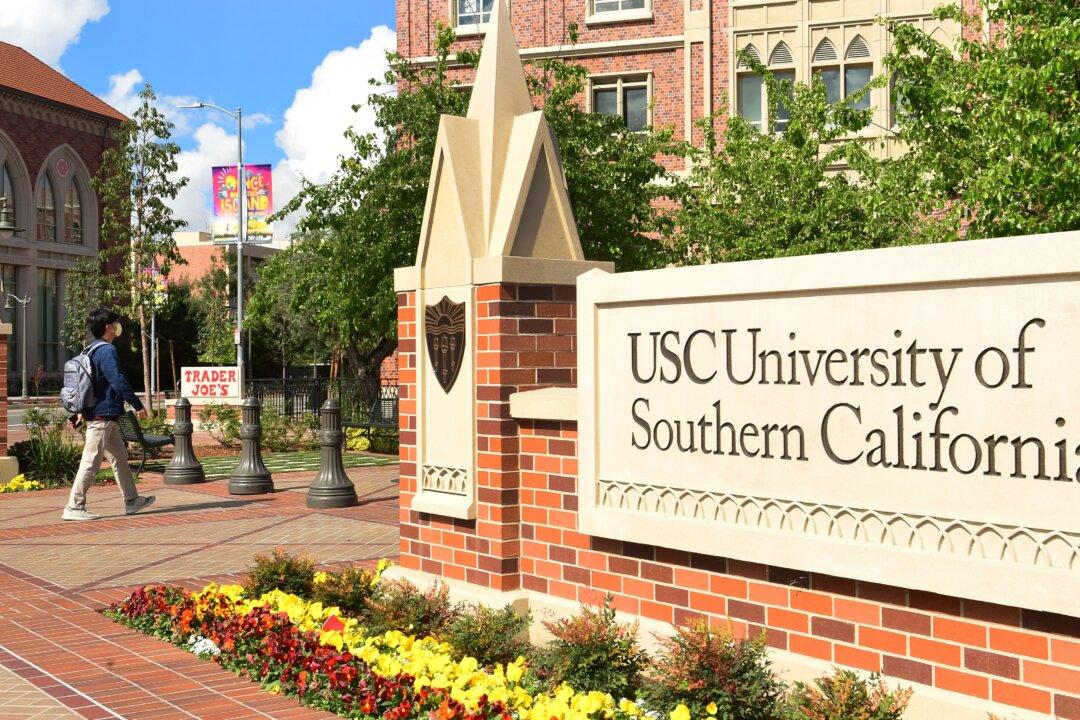LOS ANGELE—Two men who were already barred from the University of Southern California (USC) for allegedly barging into classrooms during live lectures and creating disturbances they posted on YouTube have agreed to take down the social media posts and stop disparaging the university, according to new court documents.
The accord between the university, Ernest Kanevsky, and Yuguo Bai was outlined in court papers filed Wednesday with Los Angeles Superior Court Judge James C. Chalfant. The judge had issued a tentative ruling in favor of the university’s motion for a preliminary injunction against the pair and said he was unaware of the agreement until Wednesday’s hearing.





